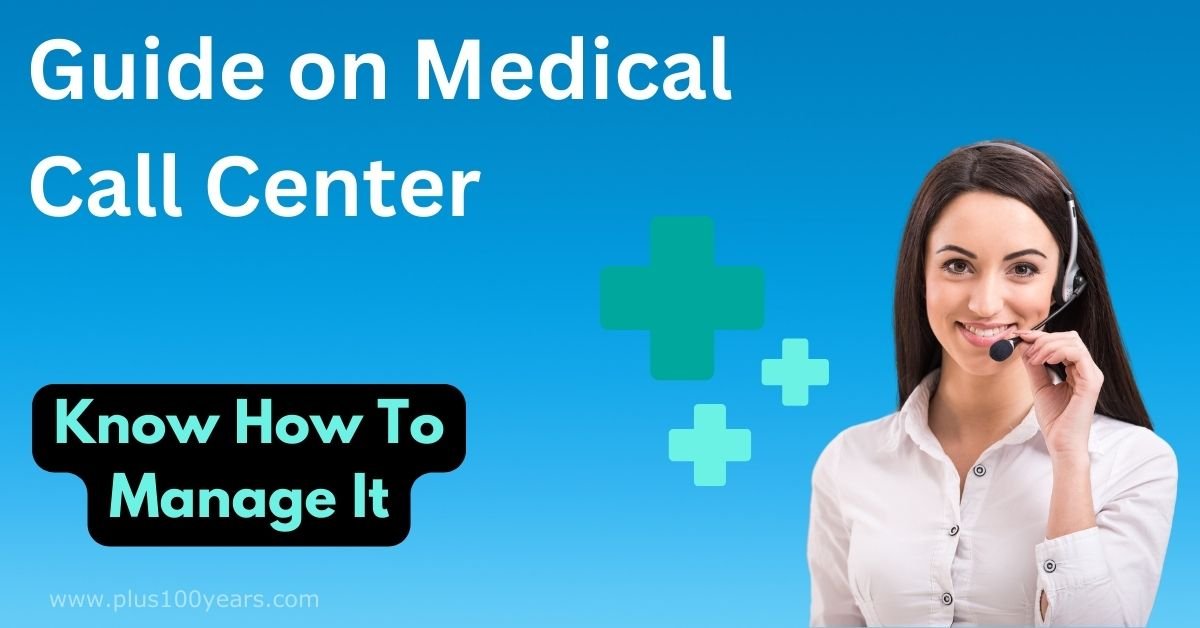Medical call centers assume a critical function in facilitating communication between patients and healthcare providers in the fast-evolving healthcare industry.
The streamlined operation of these call centers is paramount for delivering timely and efficacious aid to patients requiring assistance.
From appointment coordination to dispensing medical counsel, the smooth operation of a medical call center is indispensable for fostering patient contentment and attaining optimal healthcare results.
Streamlined Workflow In Medical Call Centers
Effective operations within medical call centers hinge significantly on establishing a well-organized workflow that guarantees swift and proficient handling of each interaction.
Key to this strategy is adopting standardized protocols governing call management, triage procedures, and information handling.
By delineating precise guidelines for call routing, expediting urgent cases, and meticulous documentation, call center personnel can adeptly navigate intricate scenarios with assurance and efficacy.
Moreover, incorporating bespoke software solutions tailored to the distinctive demands of a medical call center can automate mundane tasks like appointment arrangements, prescription renewals, and medical record retrieval.
These technological strides not only accelerate the process but also mitigate error potential, guaranteeing precise recording and authorized personnel access to patient information.
Utilization Of Technology And Telemedicine Solutions In Medical Call Centers
Integrating advanced technology and telemedicine solutions heralds a transformative leap in the efficiency and efficacy of medical call centers.
Telecommunication platforms facilitate remote consultations, empowering healthcare providers to evaluate patients’ conditions and dispense medical guidance devoid of the constraints imposed by physical appointments.
Through the utilization of video conferencing, secure messaging, and remote monitoring tools, medical call centers can expand their scope beyond conventional limits, furnishing punctual and tailored care to patients residing in remote or underserved locales.
Additionally, the incorporation of artificial intelligence (AI) algorithms for call routing and predictive analytics can optimize call center assets, refining response times and resource distribution.
AI-driven chatbots can offer preliminary triage and fundamental medical insights, allowing human agents to concentrate on more intricate cases.
By embracing technology and telemedicine solutions, medical call centers not only bolster their operational efficiency but also extend healthcare service accessibility, particularly in areas grappling with healthcare inequities.
Effective Communication Strategies In Medical Call Centers
Communication serves as the bedrock of medical call center operations, underpinning every interaction between patients and call center personnel.
Cultivating and refining effective communication strategies is imperative for nurturing comprehension, empathy, and trust within these interactions.
Call center staff must exhibit robust interpersonal capabilities, encompassing active listening, articulate expression, and empathy, to attend to patients’ inquiries and offer pertinent guidance adeptly.
Training initiatives honing communication proficiencies tailored to healthcare environments can equip personnel to navigate delicate discussions adeptly with poise and professionalism.
Moreover, harnessing technology to augment communication avenues, like interactive voice response (IVR) systems and secure messaging platforms, can streamline information dissemination and bolster accessibility for patients seeking aid.
By prioritizing effective communication methodologies, medical call centers can elevate patient contentment and fortify their standing as reliable healthcare collaborators.
Ensuring Compliance With Regulatory Standards In Medical Call Centers
Adhering to regulatory protocols and optimal procedures is crucial within medical call center operations to uphold patient privacy, confidentiality, and safety.
Compliance with rigorous regulations like the Health Insurance Portability and Accountability Act (HIPAA) is imperative to shield sensitive medical data from unauthorized access or exposure.
Enforcing robust security measures, such as encryption protocols, access controls, and routine security evaluations, serves to mitigate the likelihood of data breaches and guarantee adherence to industry benchmarks.
Furthermore, continuous training and educational initiatives focusing on privacy regulations and ethical practices empower call center personnel to uphold elevated standards of professionalism and integrity.
By prioritizing adherence to regulatory standards, medical call centers underscore their dedication to patient well-being and reliability, thereby strengthening their position as dependable healthcare allies.
Continuous Training And Skill Development In Medical Call Centers
Allocating resources towards continuous training and skill enhancement initiatives is imperative for furnishing call center personnel with the requisite knowledge, competencies, and assurance to manage a spectrum of patient scenarios adeptly.
In-depth training sessions encompassing medical terminology, disease management protocols, and customer service methodologies augment staff adeptness and efficacy.
Simulated exercises and role-playing scenarios allow personnel to hone critical skills within a controlled setting, fostering confidence and readiness to tackle real-world scenarios.
Moreover, continuous professional growth avenues, including workshops, seminars, and certification initiatives, enable staff to remain updated on evolving trends, technologies, and exemplary practices in healthcare provision.
By nurturing a milieu of perpetual learning and advancement, medical call centers cultivate a proficient workforce adept at delivering outstanding service and fostering favorable patient results.
Conclusion
Effective medical call center operations are pivotal for providing top-tier healthcare services and augmenting patient contentment.
By embracing innovation and optimal practices in call center management, healthcare organizations can equip themselves to address the shifting demands of patients within a dynamically evolving healthcare terrain.
Through constant refinement and a dedication to excellence, medical call centers assume a crucial role in propelling the provision of patient-centric care and fostering overall well-being within communities.

